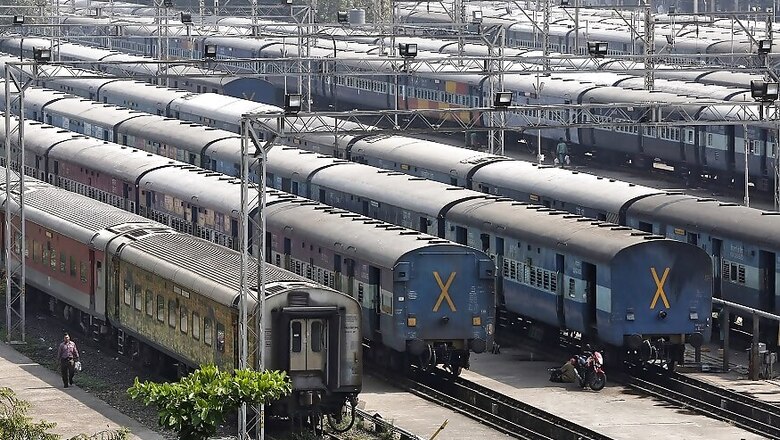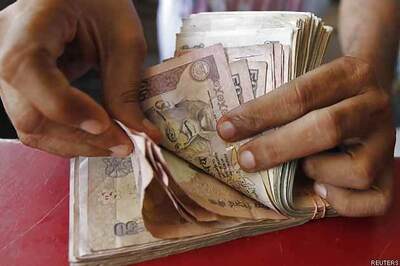
views
The first set of 12 private trains will be introduced in 2023, followed by 45 more in the next fiscal, according to an initial timeline drawn by the railways which plans to roll out all 151 such train services by 2027, officials said.
In a formal kick-start to its plans to allow private entities to operate passenger trains on its network, the railways earlier this month invited proposals from companies to run 151 modern passenger trains on 109 pairs of routes across the country. The project would entail a private sector investment of about Rs 30,000 crore.
As part of the plan for private trains, the railways has planned to introduce 12 trains in 2022-23, 45 in 2023-2024, 50 in 2025-26 and 44 more in the next fiscal, taking the total number of trains to 151 by the end of FY 2026-2027.
The request for qualification (RFQ), which was floated on July 8, is likely to be finalised by November, the financial bids will be opened by March, 2021 and selection of bidders is planned by April 31, 2021, according to a timeline for introduction of private passenger trains prepared by the railways.
Bidders quoting the highest share in gross revenue shall be awarded the project, officials said.
"We have worked out a plan by which we hope to begin private train operations. Tenders will be finalised by March 2021 and trains will operate from March, 2023," a senior official said.
The railways has said that 70 per cent of the private trains will be manufactured in India which will be designed for a maximum speed of 160 kmph.
There would be a reduction in journey time by around 10-15 per cent at 130 kmph and around 30 per cent at 160 kmph. The running time taken by a train shall be comparable to or faster than the fastest train of Indian Railways operating in the respective route.
The private player will pay the railways fixed haulage charges, energy charges as per actual consumption and a share in gross revenue determined through a transparent bidding process. The railways is expected to receive total haulage charges of around Rs 3,000 crore per annum from operation of these 151 trains, they said.
These trains shall be operated by the driver and guard of Indian Railways.
The operation and maintenance of these trains would be governed by standards and specifications and requirements specified by Indian Railways. The operation of the trains by the private entity shall conform to the key performance indicators like punctuality (95 per cent), reliability (not more than one failure for one lakh km of travel), upkeep of trains and other necessities.
The railways also has pre-specified penalties which will be recovered from the private players for failure to meet the prescribed performance standards and outcomes. Similarly, penalties will be pre-specified in the Concession Agreement for the failure on the part of the railways, officials said.

















Comments
0 comment